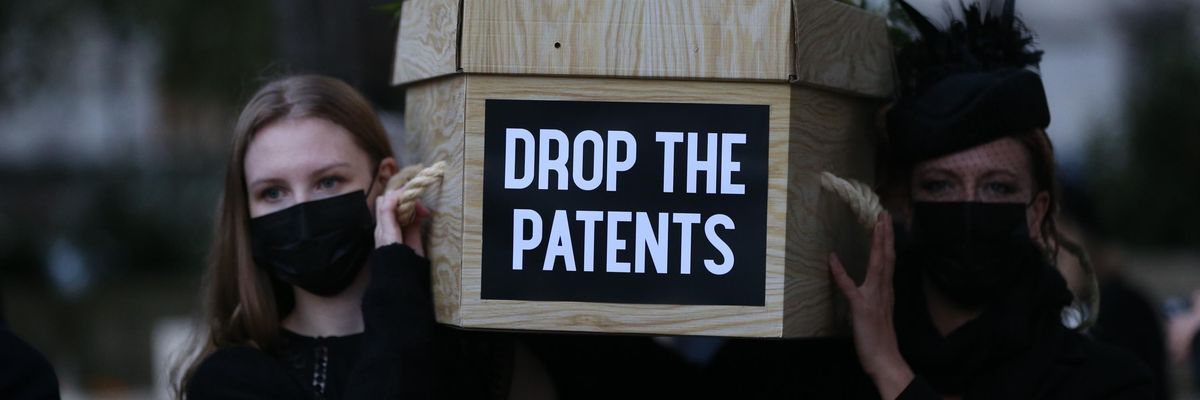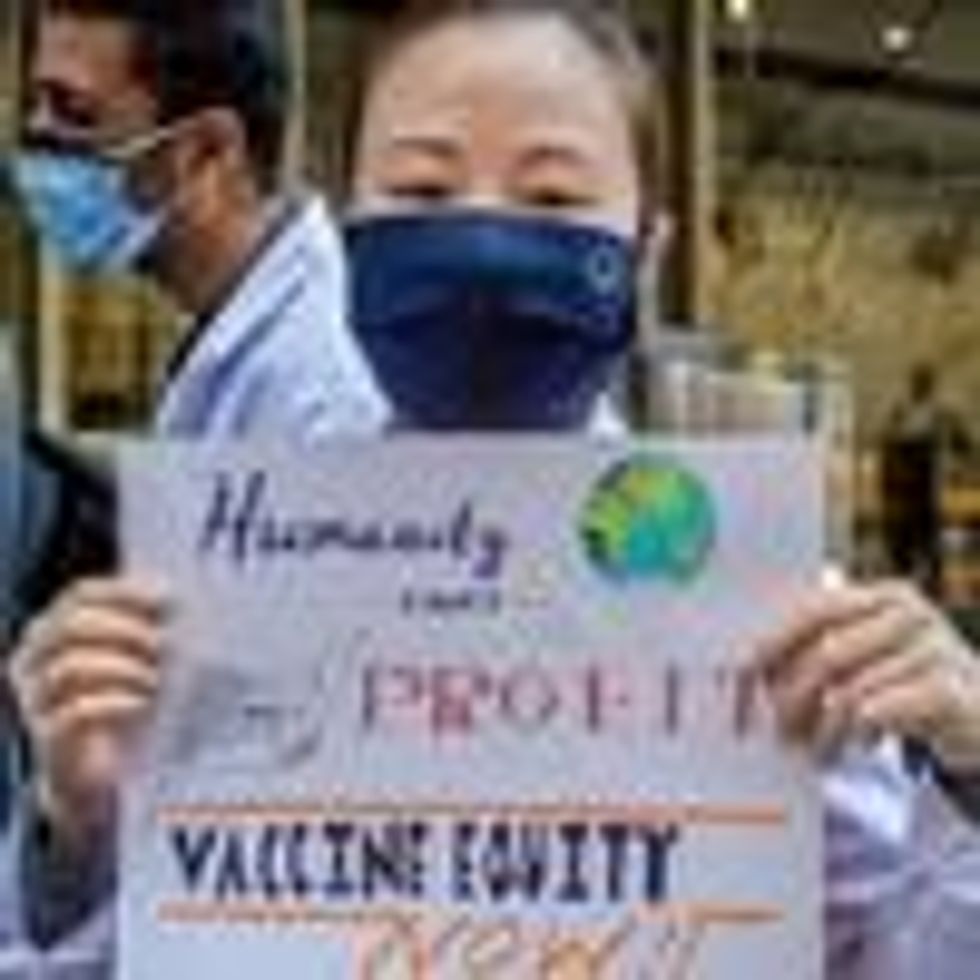Social entrepreneur and Nobel Peace Prize laureate Muhammad Yunus on Saturday called for a comprehensive waiver of intellectual property rules for Covid-19 vaccines and treatments, declaring that "freeing" the technology "from profit and patent is the key" to a global health system that puts human lives above corporate profit.
In an op-ed published Saturday in Stat news, Yunus--who's previously joined with other Nobel laureates in pushing for an end to intellectual property barriers--pointed to the global inequality in access to vaccines.
"The brutally unequal global rollout of Covid-19 vaccines and treatments is a consequence of an ever-increasing concentration of wealth and focus on profit maximization."
He referenced Oxfam's estimate that it could take an additional two and a half years for the poorest countries to meet the World Health Organization's target of vaccinating 70% of the world's population.
"Denied vaccines for more than a year," lower-income countries are now seeing the arrival of doses, he wrote, yet those countries will not be the ones deciding on which company's products arrive nor on what timeline, thus complicating vaccination campaigns. A similar phenomenon, he added, is now happening with antiviral pills, which are being hoarded by wealthy nations.
"Wealth is power," wrote Yunus. "And the brutally unequal global rollout of Covid-19 vaccines and treatments is a consequence of an ever-increasing concentration of wealth and focus on profit maximization."
The pharmaceutical industry, he asserted, is on a quest for "ever-greater profits" and thus supplies vaccines to the highest bidder.
Yunus went on to accuse "the wealthy nations, the G10, the continuous beneficiaries of the wealth-concentrating economic machine" of gaining from the current framework at the expense of the rest of the world. But these same wealthy nations, he said, "have the resources to narrow the great vaccine gap, if they want to."
A key step in ensuring equitable access to vaccines, according to Yunus, is the establishment of pharmaceutical companies focused on solving social problems rather than making profits, ones that could distribute the doses at cost. And that means "removing barriers like intellectual property rules."
Related Content
'Appalling': Deal on IP Waiver Reportedly Limited to Covid Vaccines
Jessica Corbett
That needs to happen this month, he said, with world leaders taking a step they've so far refused to do in the pandemic--backing a comprehensive waiver of parts of the Trade-Related Aspects of Intellectual Property Rights (TRIPS) Agreement. He pointed out that the E.U. and U.K. have thus far blocked such an effort. He also called out the U.S. for backing a waiver solely on vaccines.
"There is still time for world leaders to say never again," he wrote, "and to commit to a fairer system of global health that prioritizes human life over the profits of a handful of pharmaceutical companies."


